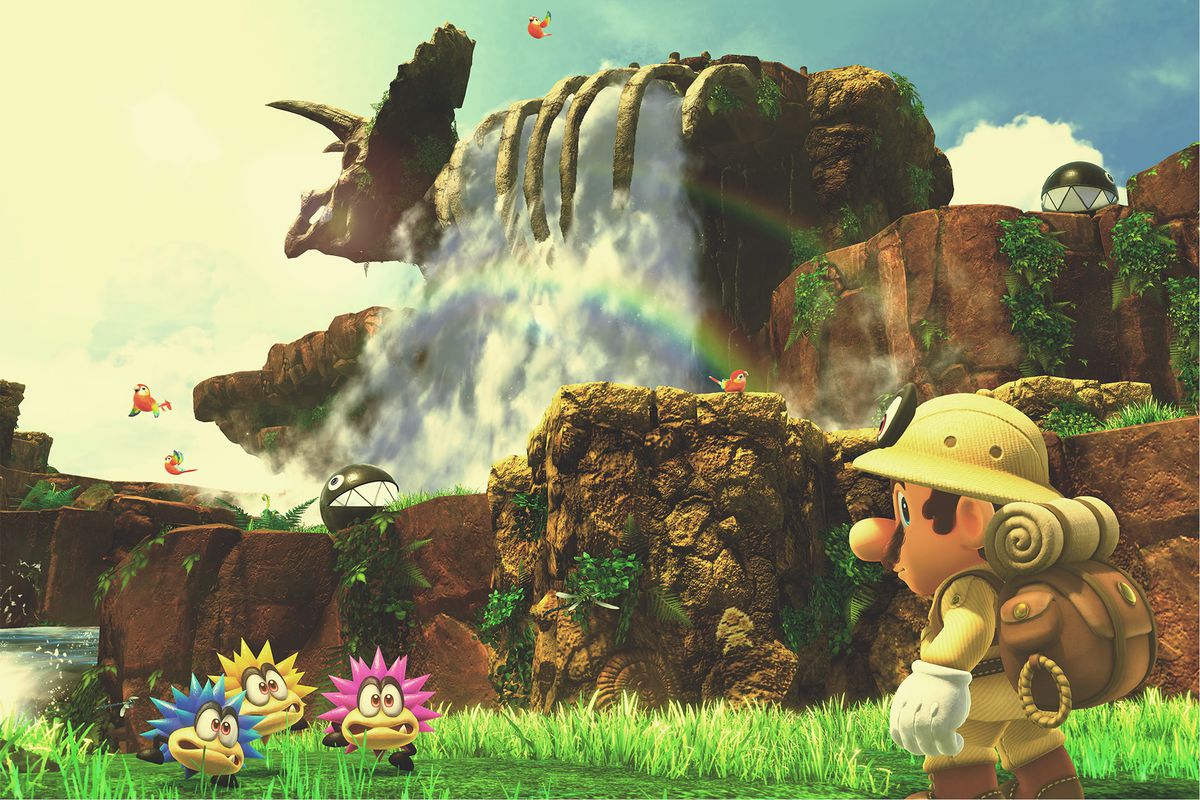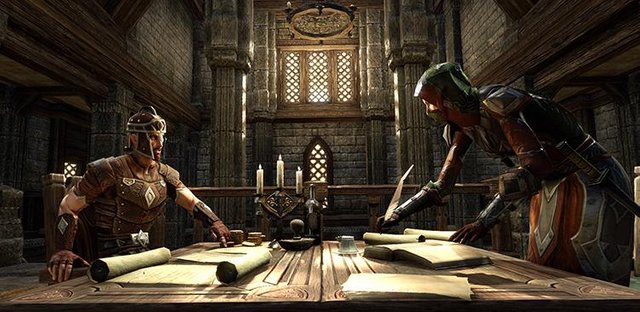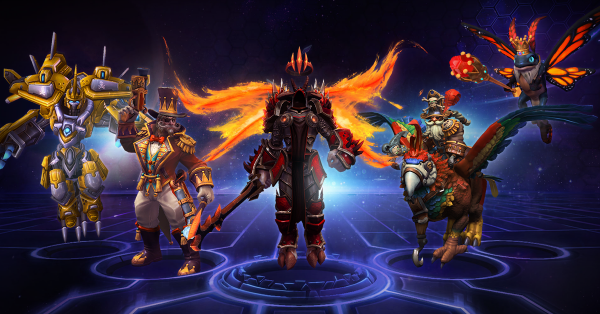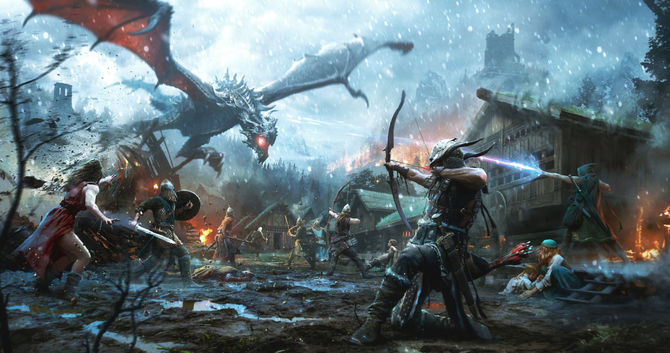Your Brain on Games - the benefits of video-games for the children who play them
Recently, I read a really interesting article on Psychology Today, about the many benefits of video games for children (and not only) and it got me thinking. I kept weighing the truths of this affirmation.
You're tempted to deny it, to go against it, repeating the same old arguments that it makes kids unsociable, that it dumbs them down and is a waste of time, in general. We are literally talking about a child spending hours alone in a room, with a screen.
And it sounds scary, when you say it like that, it sounds like something out of a dystopic book, the decline of the civilized world and so on. But is it?

I wanted to start this post by saying that I didn't get a computer until I was seven or eight. Up to that point, my chances to use one were quite limited and far between. And yes, compared to my brother and the kids today, I spent more time playing outside. And I kept trying to find a comparison, but I realized you can't. What comparison can I draw? The world has changed so much in the past decade.
Sure, kids didn't spend hours in a room, staring at a screen back then. Not here, in Romania, at least.
But neither did adults.
Or at least, not in the same way they do now. They didn't have smartphones that could answer literally every query and fulfill every demand. They didn't have instant access to the Internet on five different devices at the same time. But think about our world today. We're surrounded by technology and we, as adults, spend most of our time staring into the dark pits of Facebook, lol-ing memes, checking Pinterest and Instagram etc.
Actually, this article mentions that, in a way. Apparently, they conducted a study on children who spent hours playing video games and children who spent hours doing non-gaming things on the Internet and found that the ones who'd been playing video games were much more creative than the ones who'd just...navigated around the Internet. Yet, we claim video games are the problem.
Are they really?
Gaming and creativity

I shared the article on my Facebook page, for my gamer friends. One guy wrote about his son, who's grown up on video games:
all I can say is that the idea of the deranged, anti-social, loser in his mom’s basement smoking pot, is a myth
This coming from a very intelligent man, one whose opinion I've always held in high regard. My best friend commented:
I myself am more creative for playing video games
She told me that she looks for storyline in the games that she plays and that her favorites have always been storydriven. This is something I've heard my brother (a ten year old gamer, himself) say often, also. He has shown me countless games by now and while some of them are silly, his favorites and the ones he spends most of his time on have complex stories, indeed. I've sat through hundreds of games, trying to scroll faster through all the text. Because there is text. And it's not curse words or mindless stuff, it's an actual story. There's dialogue and intrigue and there's all this fascinating stuff behind it.
It's called game lore, apparently, and it's highly regarded in the gaming community.
So basically, these kids are being exposed to stories. To interactive, complex narrative that they follow and feed on. I'm sorry, but I can't see something bad in that. I explained the benefit of stories on the human brain here.
Gaming and the brain
Yes, I admit I'm a bit of a Peter Gray addict, so I went on to read yet another of his articles on video games, entitled Sense and Nonsense About Video Game Addiction, in which I found some very interesting paragraphs about the effect of video games on your brain.
Discussing the point of view that video games are like heroin, creating dependency in the brain, he says:
The research that Kardaris referred to demonstrates that certain pathways in the forebrain, where dopamine is the neurotransmitter, become active when people are playing video games, and drugs like heroin activate some of these same pathways. What Kardaris’s and similar articles leave out, however, is the fact that everything that is pleasurable activates these pathways. These are the brain’s pleasure pathways.
So what exactly are we raging against here? Fun?

You know, we keep hearing how bad it is for a child to spend hours on end immersed in a video game, watching a screen, but we never seem to talk about how harmful it is for a child to spend hours on end sitting in a room, staring at a teacher, having his head filled with random information that has been deemed worthy by someone else.
Well, the child has deemed the information in the video game worthy of his attention and time. Does nobody care about that? Apparently not. The child is not able to decide for himself, it seems. The obvious reply would be that he's chosen it because it's fun.
Well yeah, is fun so bad? Since when is having fun a crime? And as I said earlier, they're not only choosing it because it's fun, but because it's interesting. It excites them.
It doesn't have to excite you.
Extensive gaming can increase the volume of the right hippocampus and the entorhinal cortex, which are involved in spatial memory and navigation. It can also increase the volume of prefrontal regions the brain that are involved in executive functioning, including the ability to solve problems and make reasoned decisions .
Gray explains that, like with any muscle, if you train a specific part of your brain enough, eventually it grows stronger. Today, I'm able to do twenty push-ups. Tomorrow, I'll do twenty-five and in a week, I'll be able to do 50 – more than double what I can do today.
It's the same with your brain. Maybe today I have a poor attention and can barely focus on one thing on the screen, but with exercise, maybe in a week I'll be able to focus on twice as much. And twice as well.
Seems simple enough to me.
Gaming and society

One of the main arguments against children playing video games is that it keeps them away from other children, that it cuts down on human interaction. But in saying this, we're assuming that all the other children are outside, playing in the sun.
They're not. Most of them are playing video games. It's the world we live in.
Play has always provided the major context through which children make and interact with friends, and there is reason to think that video gaming serves that function for many children today.
I've been going to the British Council Library for three years now and I often see there children, huddled together over a phone or tablet, playing some game, waiting for their English class to start. Children connect through games. They often talk about games. I've seen this with my brother, in the park, or at the library, or at the classes he goes to (like improv classes), they talk about games, they connect through common passions.
Just like we do, as adults. To take their games away, Gray points out, would likely lead to exclusion.
Besides, a lot of these video games are based around teams. They require interaction and they teach the player that he has to work with others and get along with others, in order to win the game.
I'm playing Mario Odyssey with my brother, at the moment. I have to allow him to do what only his character can do and vice-versa.
This is a hugely important lesson in life – that we each have out strengths and weaknesses and that if we combine them, then life can really progress.

They learn to communicate on these games, because again, they have to, in order for the game to work. I play a lot on online servers, with my brother, and there are constant messages, never-ending discussions about trading, hints, players help each other out. Video gaming isn't antisocial at all.
Gaming and emotion
Another thing that I found really interesting in the first article and something that I've heard my gaming friends say is that games really help you control your emotions. As Gray points out, games can often lead to negative emotions, such as anger or frustration, which is something parents tend to view as bad. But encountering these emotions also helps the child deal with them.

If you never hit a wall, you'll never learn. If you've never had to deal with your anger or upset, then you're likely to make a mess of it. Games help you go through that, get over that. Moreover, they teach you perseverance.
I've seen my brother angry about a difficult level and I've seen it make him more certain, it made him push harder. And finally, I saw the satisfaction on his face when he did beat it.
And they put your child in unforeseen situations. And he learns how to deal with those. He gets attacked or ends up somewhere new and strange and he lives through it. So that, when he gets to an unforeseen situation in life, your child will be like 'hey, it's okay, I've been here, I've done this before.'
Thank you for reading,
.jpeg)
Images - 1 2 3 4 5 6
Games
1 - Mario Odyssey
2&5 - The Elder Scrolls
3 - Assassin's Creed
4 - Heroes of the Storm
6 - Donkey Kong Country
i will play this game
Great and Comprehensive article. I remember hearing some interesting stuff from Jane McGonigal (Authour of "Superbetter") about some studies indicating that gaming is a great way to test our risk and feedback responses in the brain, in a more controlled safe environment. She's a fascinating character and worth listening to her on the Joe Rogan Podcast. I'll certainly be checking out some Peter Gray in the meantime!
Congratulations! Your post has been selected as a daily Steemit truffle! It is listed on rank 23 of all contributions awarded today. You can find the TOP DAILY TRUFFLE PICKS HERE.
I upvoted your contribution because to my mind your post is at least 25 SBD worth and should receive 95 votes. It's now up to the lovely Steemit community to make this come true.
I am
TrufflePig, an Artificial Intelligence Bot that helps minnows and content curators using Machine Learning. If you are curious how I select content, you can find an explanation here!Have a nice day and sincerely yours,

TrufflePigMuch food for thought there @honeydue, so glad to have read this, reinforcing my belief and experience that gaming is not the villain it's made out to be! My son (41) started way back on what I think was one of the first gaming devices, Atari, then the Commodore 64. I must admit there was the danger of addiction but that was just a passing phase. Today he is a brilliant Java developer and I certainly believe all those years of growing up with gaming and techno gadgets (limited by our budget of course) helped develop not only his IT skills but also his personality, a young man...you gasp but that's young in my eyes ;);)...who is amazingly wise and with a deep sense of awareness to people around him.
Thank you for this post @honeydue, I'm just sorry I only saw it now!